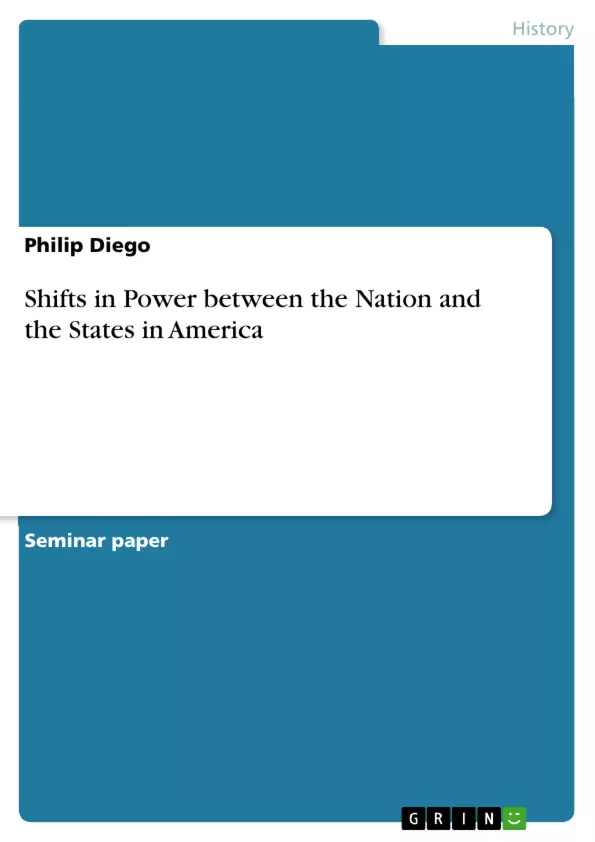The highest court in the United States (the Supreme Court) made a ruling in 1857 that Africans (blacks) had no rights, could not become U.S citizens, and that Congress had no powers to abolish slavery. The aftermath of the ruling saw the United States suffer one of the bloodiest wars in world history – the Civil War. In less than ten years since the ruling was made, Congress together with the Northern states addressed the biases in the ruling. The biases were addressed through the amendment of the constitution and the civil rights statute. Through the 13th Amendment, slavery was abolished in all parts of the United States. The 14th Amendment and the Civil Rights Act of 1866 guaranteed citizenship for all qualified, natural-born, and naturalized Americans, inclusive of former slaves and free blacks. The civil rights statute, in addition, authorized the transfer of cases from state to federal courts in cases where citizens’ rights could not be enforced through state systems of justice. The 14th Amendment also prohibited states from infringing the rights enjoyed by American citizens, as well as, ensuring every citizen had the right to due process and equal protection of the law (Kaczorowski, 1987, p. 45).
The Congressional Republicans held the view that the14th Amendment and Civil Rights Act of 1886 provided a good ground for revolutionary change in the constitution of the United States. In observance of the 19th century concept of federalism, there was a need for Congress to legislate for the protection of civil rights. Had the status and fundamental rights of citizenship been the rights enjoyed by individuals owing to their state citizenship, the Congress would have had no authority to ensure for their protection. The fundamental rights would have been out of the jurisdiction of the states. The Fourteenth Amendment and the Civil Rights Statute that conferred citizenship on all Americans, and expanded its federally enforceable guarantees to include civil rights protection was surely a revolutionary twist in American federalism (Kaczorowski, 1987, p. 47).
Inhaltsverzeichnis (Table of Contents)
- Post-Civil War America
- McCulloch v. Maryland
Zielsetzung und Themenschwerpunkte (Objectives and Key Themes)
This text examines the shifts in power between the national government and individual states in the United States, particularly in the aftermath of the Civil War. It analyzes how constitutional amendments and Supreme Court rulings reshaped the balance of power and the rights of American citizens.
- The impact of the Civil War on the relationship between the federal and state governments
- The evolution of the concept of citizenship and civil rights in the United States
- The role of the Supreme Court in interpreting and defining the Constitution's provisions
- The ongoing debate over the balance of power between the national and state governments
- The enduring legacy of the Civil War Amendments on American law and society
Zusammenfassung der Kapitel (Chapter Summaries)
Post-Civil War America
This section explores the legal and political landscape of the United States after the Civil War. It highlights the passage of the 13th, 14th, and 15th Amendments, which aimed to abolish slavery, guarantee citizenship, and protect civil rights. The text discusses the debate surrounding the power of Congress to enforce these amendments and the conflicting perspectives of Congressional Republicans and Democrats regarding state sovereignty and federal supremacy. The section also analyzes the Supreme Court's rulings in the 1870s, which ultimately reinforced the concept of state rights and limited the federal government's role in protecting civil rights.
McCulloch v. Maryland
This section discusses the landmark Supreme Court case of McCulloch v. Maryland (1819). It explains how the case established the principle of implied powers, granting Congress authority to enact laws not specifically mentioned in the Constitution, as long as they are necessary and proper for carrying out its enumerated powers. The text examines the significance of this case for the relationship between the federal and state governments, particularly in relation to the power of Congress to establish a national bank.
Schlüsselwörter (Keywords)
The main keywords of this text include: federalism, state sovereignty, civil rights, citizenship, constitutional amendments, Supreme Court rulings, McCulloch v. Maryland, implied powers, 13th Amendment, 14th Amendment, 15th Amendment, Civil War, Reconstruction era.
Frequently Asked Questions
How did the Civil War affect American federalism?
The Civil War led to a revolutionary shift in power, moving from state sovereignty toward a stronger national government, particularly through the passage of the 13th, 14th, and 15th Amendments.
What was the significance of the 14th Amendment?
The 14th Amendment guaranteed citizenship to all persons born or naturalized in the US, including former slaves, and ensured due process and equal protection of the laws for every citizen.
What did the Supreme Court rule in McCulloch v. Maryland?
The 1819 ruling established the principle of "implied powers," granting Congress the authority to enact laws necessary and proper for carrying out its constitutional duties, such as creating a national bank.
What was the impact of the Civil Rights Act of 1866?
It was the first federal law to define citizenship and affirm that all citizens are equally protected by the law, significantly expanding federal authority over civil rights protection.
How did the 13th Amendment change the United States?
The 13th Amendment formally abolished slavery in all parts of the United States, ending a system that had been a central point of conflict leading up to the Civil War.
- Quote paper
- Philip Diego (Author), 2012, Shifts in Power between the Nation and the States in America, Munich, GRIN Verlag, https://www.grin.com/document/271573



